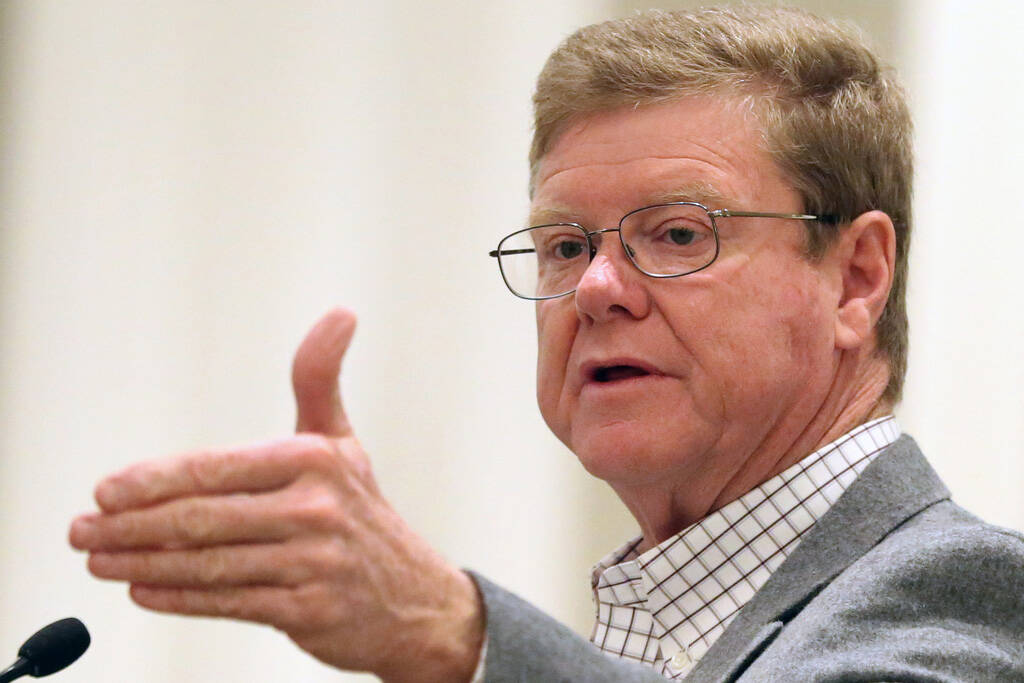‘Responsible mining’ bill makes progress; critics push back

A bill by Rep. Mark Amodei that would allow mining companies to conduct operations on public land regardless of whether a mineral deposit has been discovered on the land was passed Wednesday by the House.
“Now more than ever, we must ensure we are doing all that we can to increase domestic mineral production and protect the ability to conduct responsible mining activities on federal lands,” Amodei, Nevada’s sole Republican representative, said in a statement Wednesday.
The Mining Regulatory Clarity Act of 2024 passed on a 216-195 vote Wednesday evening and addresses a judicial decision originating in Arizona in which a court ruled that a mining company’s claim to dump waste rock and tailings on public lands where no valid mining claims existed was baseless.
Known as the Rosemont decision, the ruling would prohibit activities like processing sites or the storage of waste on lands without economically viable minerals, according to a statement from Amodei’s office.
The legislation would reaffirm a long-held precedent that some public land use under a mining claim accompanies exploration and extraction activities, according to Amodei’s office.
Sen. Catherine Cortez Masto, D-Nev., and Sen. Jim Risch, R-Idaho, introduced the bill on the Senate side, and following the House passage, called on the Senate to quickly do the same. Nevada’s other Democratic senator, Jacky Rosen, was also an original co-sponsor of the bill.
“Everything from lithium-ion batteries to satellites relies on critical minerals, and we should be responsibly mining those right here in the U.S.,” Cortez Masto said in a statement. “Without a fix, the Rosemont decision could upend existing and future mining projects, threatening thousands of jobs in Nevada and across the West. I’ll continue to stand up for our communities and for our clean energy future.”
Some conservation and Indigenous groups, however, have pushed back on the legislation and say the bill would walk back environmental protections, threaten the health of communities and impact public lands. The Sierra Club and Western Shoshone Defense Project said in a statement that the bill would return the country back to the wild West and give mining companies free rein, locking out land to the public.
Mary Gibson, a member of the Western Shoshone Nation and advisory board member to the Western Shoshone Defense Project, called the legislation “cultural and spiritual genocide.”
Gibson said mining affects drinking water, and some communities don’t have access to clean drinking water because water wells have been contaminated by toxins used in the mining industry.
“This bill, if it becomes law, would perpetuate further harm against Indigenous Peoples of Nevada, the original stewards of these lands, by allowing mining waste and pollution to run rampant,” Gibson said in a statement.
Contact Jessica Hill at jehill@reviewjournal.com. Follow @jess_hillyeah on X.